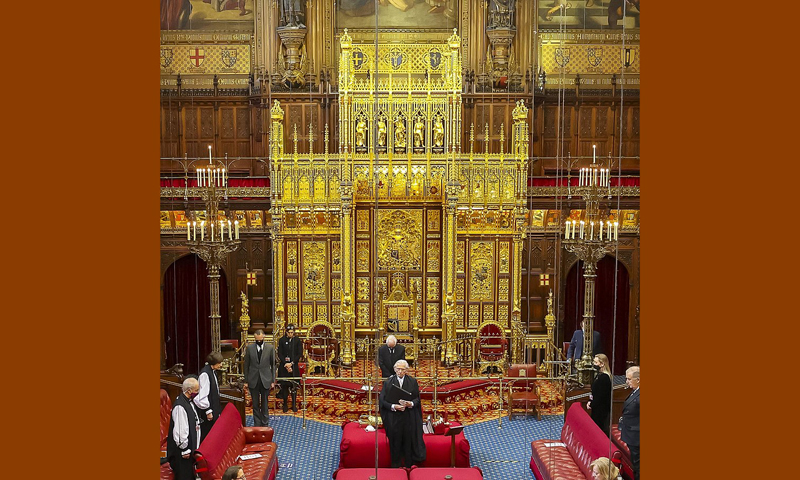
The Divine Right of Kings
The Divine Right of Kings was a theory that the monarchy was appointed by a divine being, or God, making the monarch’s position unassailable. In medieval times this was used as a way to stop other nobles from trying to take the throne for themselves. In the 16th and 17th centuries in Britain, it was also used as a way to separate the country from the power of the Catholic Pope in Rome.
To this day, the motto of the UK monarchy is “Dieu et mon droit” (God and my right), which it is said was first proclaimed by French-speaking King Richard I (1157-99) in reference to his royal bloodline. The British royal line of succession through the centuries has by no means been straight and simple ~ look at King George I, for one example ~ so the ‘right’ is somewhat diluted by rules regarding gender, religion and parents’ marital status.
The photograph above shows the magnificent gilded Sovereign’s Throne in the House of Lords at Westminster which was installed in 1847 and can only be occupied by one who successfully ticks all the boxes.
(Image: ukhouseoflords at Wikimedia Commons / CC BY 2.0)
